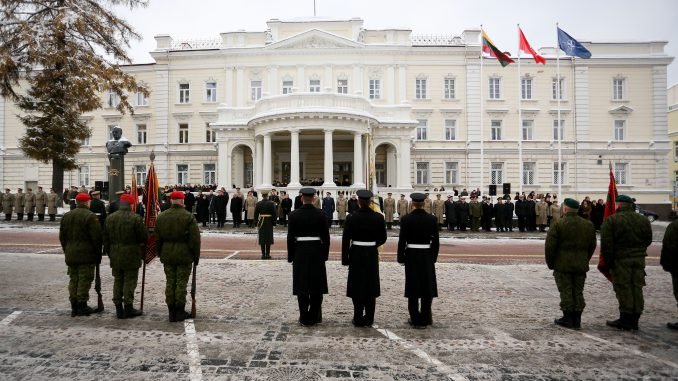
The report evaluated anti-corruption practices in 21 NATO member states and 12 partner countries. Lithuania’s corruption risk in the defence and security sector was rated as moderate (C) and the country was ranked below Latvia and Poland.
“The Defence Ministry’s Inspector General – the body responsible for building integrity in the defence sector and receiving whistleblower signals – has been criticised by civil society organisations as lacking transparency and there is little evidence of the department’s effectiveness. There is no legislation explicitly protecting whistleblowers and opinion polls show that Lithuanian citizens are worried about repercussions if they do make problems known,” reads the Government Defence Anti-Corruption Index for Lithuania.
Corruption risks remain as far as defence spending is concerned. As Lithuania strives to increase defence spending to 2 percent of GDP, it was recommended to ensure higher transparency and monitoring of procurement. Single-sourcing is increasingly more frequent than open competition. Based on the data of the Public Procurement Office (VPK), in 2013 none of the tenders were open, while 43 percent of tenders were single-sourced. 57 percent of tenders were single-sourced in 2014, with no open competition either.
The Government Defence Anti-Corruption Index measures levels of corruption risk in national defence establishments, and scores each country from A (the best) to F (the worst). These bands are based on scores on an assessment consisting of 77 questions. Countries were scored in five risk areas: political risk, financial risk, personnel risk, operations risk, and procurement risk.

Be the first to comment